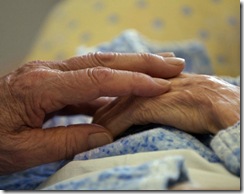 In advance of California Healthcare Decisions Week, Oct. 23 to 29, Dr. Lanyard Dial, CEO and medical director of Livingston Memorial Visiting Nurses Association, has written this week’s The Other Side of 50 column. Unlike earlier generations, odds are that many of us will die a slow death, often mixed with periods of isolation and loss of personal dignity. Would this be your choice? Is there a way to end your life well? It is my belief that we have a choice to alter this path and find an alternative end to our life, an end that we choose. How? With the help of the medical professionals in Palliative Care and Hospice. The American healthcare system today is magnificent. We have access to many vaccinations, antibiotics and medications that can treat virtually any disease that afflicts us. We have superior techniques to provide surgical cures and treatments for many illnesses. We can transplant new organs into our bodies when ours are so diseased that they no longer work. We can...
In advance of California Healthcare Decisions Week, Oct. 23 to 29, Dr. Lanyard Dial, CEO and medical director of Livingston Memorial Visiting Nurses Association, has written this week’s The Other Side of 50 column. Unlike earlier generations, odds are that many of us will die a slow death, often mixed with periods of isolation and loss of personal dignity. Would this be your choice? Is there a way to end your life well? It is my belief that we have a choice to alter this path and find an alternative end to our life, an end that we choose. How? With the help of the medical professionals in Palliative Care and Hospice. The American healthcare system today is magnificent. We have access to many vaccinations, antibiotics and medications that can treat virtually any disease that afflicts us. We have superior techniques to provide surgical cures and treatments for many illnesses. We can transplant new organs into our bodies when ours are so diseased that they no longer work. We can...